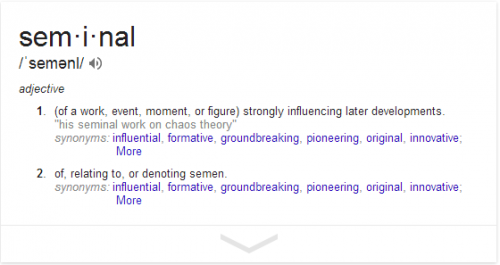
Possibly one of the most insidious ideas to come out of the last two decades of corporate management has been the “do what you love” ethos. Not only is the concept built on the premise that you can afford to pursue your passion for free while you find a way to monetize it, the “do what you love” mantra also assumes that what you do for money will always fill most of your working hours and be something that you primarily identify with. Its a uniquely American concept that what you do to earn a pay check says something about you. That you’re not truly an artist or a scholar until you can make a living off of that labor. I’ve been thinking a lot about the different contours of work after this year’s extremely successful iteration of Theorizing the Web. It was my first year on the committee and, while I loved every minute of it, doing this kind of work always makes you think about what sorts of work organizations are sustainable and the nature of work more generally. more...








